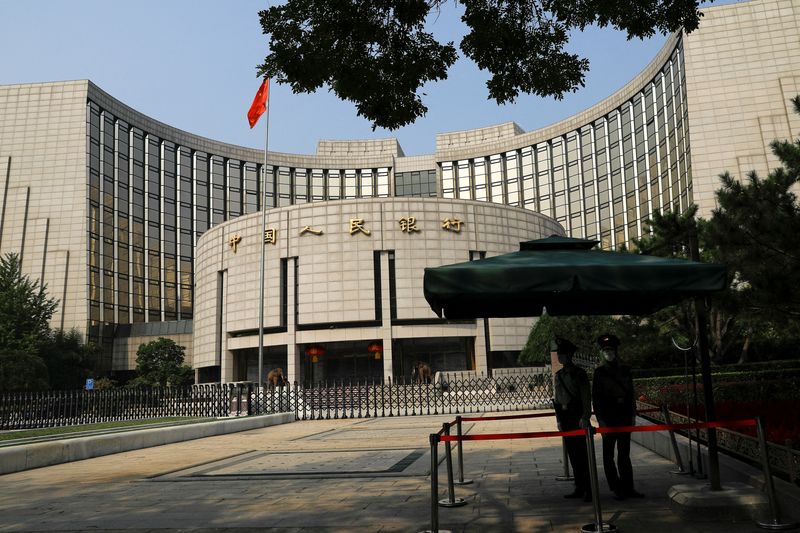SHANGHAI (Reuters) - Cash conditions in China's money market showed signs of tightness on Monday, as market participants grew cautious about month-end demand and a recent liquidity squeeze remained fresh in memory.
Despite fresh liquidity injections by the central bank to calm the market, traders and analysts said borrowing costs for the funds that could help financial institutions, especially non-banks, to tide over the critical month-end period remained high.
The price of the benchmark seven-day repos traded in the interbank market, hit a high of 2.8% on Monday, the highest level since Oct. 31. Meanwhile, the borrowing cost of such repos for non-bank financial institutions was about 3.5%, according to traders.
"Money that can help span the month-end has tightening bias, and it's expensive for non-banks," said a trader at a Chinese bank.
Some traders also said general sentiment was cautious due largely to fears of another cash crunch.
Routine month-end demand for cash in China's banking system snowballed into a scramble on Oct. 31 that pushed short-term funding rates as high as 50% in some cases, an incident that prompted the authorities to investigate.
"The interbank money market now relies heavily on reverse repos, and bank's willingness to lend to their peers is low, and this may be one of the factors that triggers fluctuations in the funding costs towards the month-end," Liu Yu, analyst at GF Securities.
The People's Bank of China (PBOC) injected a net 296 billion yuan ($41.05 billion) through reverse repos in open market operations on Monday, the third straight session of net cash offerings into the financial system. [CN/MMT] The interest rate on one-year AAA-rated negotiable certificates of deposit (NCDs), which measures short-term interbank borrowing costs, has been persistently trading higher to hit an over seven-month high of 2.6279%.
NCDs has been a popular short-term debt instrument used by financial institutions in the interbank market for financing.

Sources told Reuters earlier this month that China's central bank asked some lenders to cap interest rates on an interbank debt instrument, referring to the rising short-term yields on bank debt and strains in funding markets.
($1 = 7.2111 Chinese yuan)